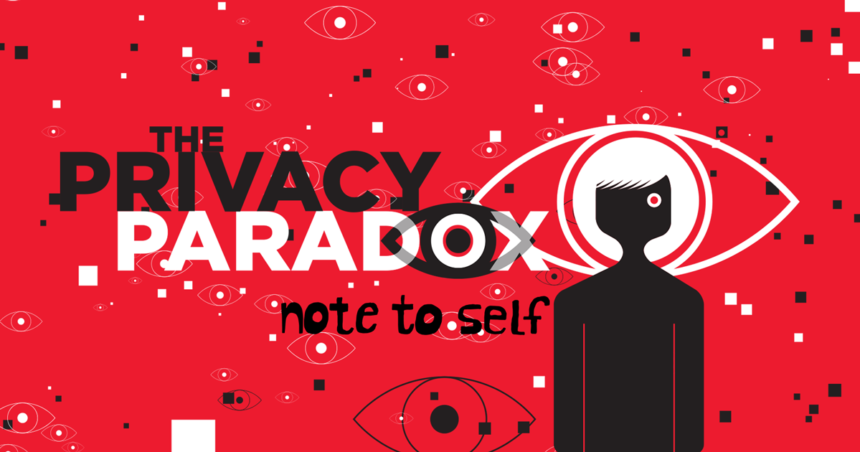The Privacy Paradox
Ever find yourself chatting with your smart speaker like it’s a buddy, only to pause and wonder if it’s secretly tattling on you? Yeah, we’ve all been there. Smart devices are everywhere now, from voice assistants to smart fridges, making life super convenient. But there’s a catch: these gadgets know a lot about you. Maybe too much. This is the privacy paradox—we love the ease, but we’re not always thrilled about how much personal info we’re sharing. In this blog post, we’ll break down what this paradox means, the risks of smart devices, their benefits, and practical ways to protect your privacy without tossing out your tech. If you’re wondering how to enjoy your smart home while keeping your data safe, you’re in the right place.
- The Privacy Paradox
- What Is the Privacy Paradox?
- How Smart Devices Collect Your Data
- The Benefits of Smart Devices
- The Risks of Smart Devices
- How to Protect Your Privacy with Smart Devices
- 1. Read the Fine Print (or at Least Skim It)
- 2. Turn Off What You Don’t Need
- 3. Use Strong Passwords and Two-Factor Authentication
- 4. Keep Your Devices Updated
- 5. Secure Your Wi-Fi Network
- 6. Limit Data Sharing
- 7. Consider Open-Source Alternatives
- 8. Be Mindful of What You Say
- Dont miss: How to Protect Your Privacy Online in 2025: A Practical Guide
- Balancing Convenience and Privacy
- The Future of Smart Devices and Privacy
- Conclusion
What Is the Privacy Paradox?
The privacy paradox is simple: we say we value our privacy, but our actions don’t always match up. You might worry about companies tracking you, yet you still use a smart thermostat that logs your daily routine. Studies show that over 80% of people express concern about data privacy, but the global smart home market is expected to hit $174 billion by 2025. That’s a lot of people buying devices that collect personal info!
Why does this happen? Convenience is king. Smart devices save time, make life easier, and let’s be honest—they’re kind of cool. But every time you ask your virtual assistant for the weather or let your fitness tracker monitor your steps, you’re sharing data. This creates a tug-of-war between enjoying the perks and protecting your personal information.
How Smart Devices Collect Your Data
Smart devices are like curious little spies in your home. They gather info in ways you might not even notice. Here’s a quick look at how they do it:
- Voice Assistants: Devices like Amazon Echo or Google Home listen to your commands. They record snippets of your voice, which are often stored in the cloud to “improve” the service.
- Smart TVs: These track what you watch, when, and for how long. Some even use cameras or microphones to analyze your reactions.
- Fitness Trackers: Your smartwatch knows your heart rate, sleep patterns, and where you go for your morning jog.
- Smart Appliances: From fridges that track your groceries to thermostats that learn your schedule, these devices collect data to predict your habits.
- Security Cameras: They keep an eye on your home, but they also store footage that could be accessed by companies or hackers.
This data helps companies personalize ads, improve products, or even sell your info to third parties. Sounds creepy, right? But it’s not all bad—let’s talk about why we keep these devices around.
The Benefits of Smart Devices
Before we get too paranoid, let’s give credit where it’s due. Smart devices are popular for a reason. Here are some perks that keep us hooked:
- Convenience: Need a recipe while your hands are covered in dough? Just ask your smart speaker. Want to turn off the lights without leaving the couch? There’s a device for that.
- Energy Savings: Smart thermostats like Nest learn your habits and adjust your home’s temperature to save energy (and money).
- Safety: Smart security systems let you monitor your home from anywhere, giving peace of mind.
- Health Insights: Fitness trackers help you stay active, monitor your sleep, and even alert you to potential health issues.
- Entertainment: Smart TVs and speakers make streaming your favorite shows or music a breeze.
These benefits explain why so many of us are willing to trade a bit of privacy for the perks. But the risks are real, and they’re worth understanding.
The Risks of Smart Devices
While smart devices make life easier, they come with some serious downsides. Here’s what you need to watch out for:
- Data Breaches: Hackers love smart devices. In 2023, over 2.6 billion personal records were exposed globally, and poorly secured smart devices are a common target.
- Surveillance: Some devices listen or watch even when you don’t expect it. Ever had an ad pop up for something you only talked about? That’s not always a coincidence.
- Data Sharing: Companies often share your data with advertisers or partners. Your smart TV might tell a marketing firm you love sci-fi movies.
- Lack of Transparency: Many companies aren’t clear about what they do with your data. Those long terms of service agreements? Most people don’t read them.
- Obsolescence: Smart devices often rely on cloud servers. If the company shuts down or stops supporting your device, it could become a fancy paperweight.
These risks can feel overwhelming, but don’t worry—you don’t have to unplug everything. There are ways to enjoy your smart devices while keeping your privacy in check.
How to Protect Your Privacy with Smart Devices
You can have the best of both worlds: the convenience of smart tech and better control over your data. Here are practical tips to stay safe:
1. Read the Fine Print (or at Least Skim It)
Before buying a smart device, check the company’s privacy policy. Look for answers to these questions:
- What data do they collect?
- Do they share it with third parties?
- Can you opt out of data collection?
If the policy is vague or hard to find, that’s a red flag.
2. Turn Off What You Don’t Need
Many devices let you disable features like voice recording or location tracking. For example:
- Mute your smart speaker’s microphone when you’re not using it.
- Disable the camera on your smart TV if you don’t need it.
- Limit location sharing on your fitness tracker.
Check the device’s settings or app to find these options.
3. Use Strong Passwords and Two-Factor Authentication
Secure your accounts with strong, unique passwords. Enable two-factor authentication (2FA) for any app or service connected to your smart devices. This adds an extra layer of protection against hackers.
4. Keep Your Devices Updated
Manufacturers release updates to fix security flaws. Make sure your devices are set to update automatically, or check for updates regularly.
5. Secure Your Wi-Fi Network
Your smart devices connect through your Wi-Fi, so make sure your network is locked down:
- Use a strong Wi-Fi password.
- Enable WPA3 encryption (or WPA2 if WPA3 isn’t available).
- Set up a separate guest network for your smart devices to keep them isolated from your main devices.
6. Limit Data Sharing
Many devices let you opt out of data sharing for advertising purposes. Dig into the settings to turn off personalized ads or data collection where possible.
7. Consider Open-Source Alternatives
Some smart devices, like those running on open-source platforms, give you more control over your data. For example, Home Assistant is a privacy-focused platform for managing smart home devices.
8. Be Mindful of What You Say
Voice assistants are always listening for their wake word (like “Alexa” or “Hey Google”). Avoid sharing sensitive info—like credit card numbers—near these devices.
Dont miss: How to Protect Your Privacy Online in 2025: A Practical Guide
Balancing Convenience and Privacy
The privacy paradox doesn’t mean you have to choose between tech and safety. It’s about finding a balance. Start by picking devices from reputable companies with clear privacy policies. Brands like Apple and Google tend to have stronger security measures, though they still collect data. If you’re super privacy-conscious, look into devices that store data locally instead of in the cloud.
Another tip? Prioritize what matters most to you. If you love your smart speaker but don’t need a smart fridge, skip the fridge. Every device you add increases your data footprint, so choose wisely.
The Future of Smart Devices and Privacy
As smart devices get more advanced, the privacy paradox will only grow. New tech like AI-powered assistants and augmented reality devices will collect even more data. Governments are starting to step in—laws like the GDPR in Europe and the CCPA in California give users more control over their data. In the future, we might see stricter regulations or even “privacy-first” smart devices that prioritize user control.
For now, staying informed is your best defense. Keep up with news about data breaches and privacy laws. Check your device settings regularly to see what’s changed. And don’t be afraid to ask questions about how your data is used.
Conclusion
The privacy paradox is real, but it doesn’t have to stress you out. Smart devices can make life easier, safer, and more fun, but they come with risks. By understanding how your devices collect data, taking steps to secure them, and being picky about what you bring into your home, you can enjoy the perks without feeling like Big Brother is watching. So, next time you ask your smart speaker to play your favorite song, you can do it with a little more peace of mind.






